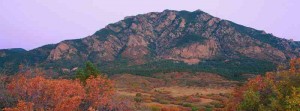The English poet T. E. Hulme (1883-1917) talking about creative writing compared it to geometrical drawing. Hulme had studied mathematics and philosophy at Cambridge, although without graduating.
The great aim is accurate, precise and definite description. The first thing is to recognize how extraordinarily difficult this is. It is no mere matter of carefulness; you have to use language, and language is by its very nature a communal thing; that is, it expresses never the exact thing but a compromise – that which is common to you, me and everybody. But each man sees a little differently, and to get out clearly and exactly what he does see, he must have a terrific struggle with language, whether it be with words or the technique of other arts. Language has its own special nature, its own conventions and communal ideas. It is only by a concentrated effort of the mind that you can hold it fixed to your own purpose. I always think that the fundamental process at the back of all the arts might be represented by the following metaphor. You know what I call architect’s curves – flat pieces of wood with all different kinds of curvature. By a suitable selection from these you can draw approximately any curve you like. The artist I take to be the man who simply can’t bear the idea of that “approximately”. He will get the exact curve of what he sees whether it be an object or an idea in the mind. Suppose that instead of your curved pieces of wood you have a springy piece of steel of the same types of curvature as the wood. Now the state of tension or concentration of mind, if he is doing anything really good in this struggle against the ingrained habit of technique, may be represented by a man employing all his fingers to bend the steel out of its own curve and into the exact curve which you want. Something different to what it would assume naturally.”
Reference:
T. E. Hulme, in the essay, “Romanticism and Classicism”, quoted in: A. Alvarez [2003]: Making it new. The New York Review of Books, 15 May 2003, Volume L, No. 8, pp. 28-30.

